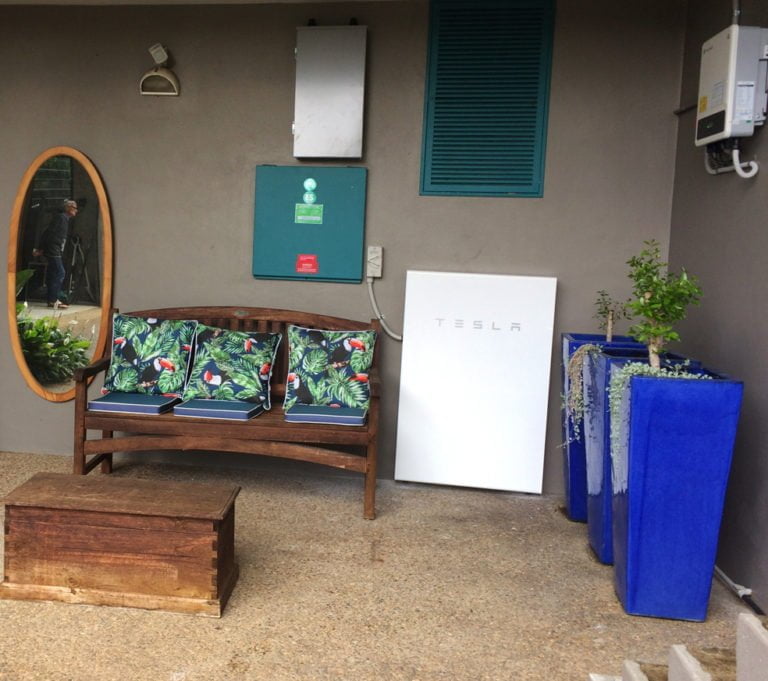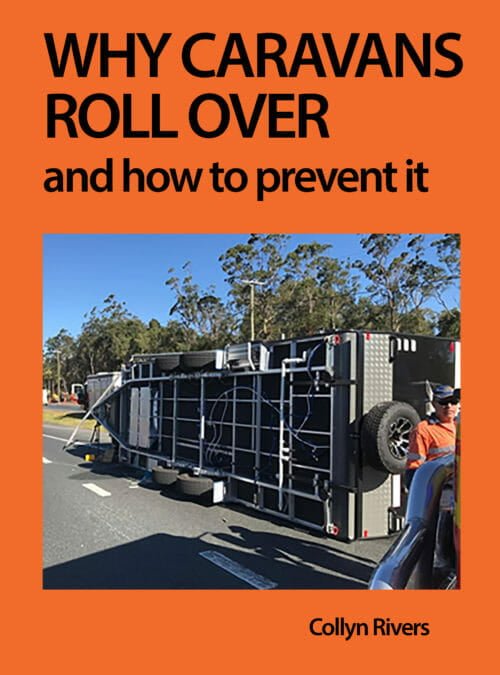Going off the electricity grid
Going off the grid appeals to many. An alternative is to retain it. But have the supplier mainly pay you. This article explains all.
 All-solar town (Frieburg – Germany).
All-solar town (Frieburg – Germany).
RV Books recently upgraded our system. This was not for leaving the electricity grid. It was to produce three to four times more electricity than we use on almost all days. We are thus not entirely free of the grid, but only rarely draw from it. At night, (or when overcast) we run from battery power. During each typical day we sell 15-40 kWh (at a current 20 cents per kWh).
Going off the grid – why do it?
If connected, going off the grid makes no financial sense. Grid electricity prices soared in 2018. This was due mainly to commercial greed. That rise is unlikely to continue. Consumption is falling as appliances become increasingly more efficient. Apart from rare peaks, many countries now have more generating capacity than needed. Rather than going off-grid, retain that grid connection and have the supplier pay you. RV Books has done since 2018.
Going off the grid – reliability
A well designed and built solar system is ultra-reliable. We designed and self-built the system shown below in 2000. RV Books no longer owns that (Broome WA) property. It is now 2019, however, but it still works much as when new.

Our previously-owned (3.8 kW) solar array – north of Broome (Western Australia)
Being free of Big Brother
Many consider going off the grid to be free of Big Brother. That has a ‘feel good factor’ but comes at an extremely high price. We briefly considered doing so for our current home (in Sydney). Instead, we upgraded our system (from 2.4 kW) to 6 kW and added a Telsa 14 kW/h battery. The system produces three to four times more electricity than we use on almost all days. The battery supplies us at night and rare times of little solar input.
We are thus not entirely free of the grid – but only rarely draw from it. During most days we sell 15-30 kWh (at a current 20 cents per kWh). That is a ‘feel good’ factor.
Even when substantially overcast that 6 kW system still produces enough for our daily needs. The grid provides back-up in case of rare periods of little sun. It may rarely be used, but is far cheaper than any other way of generating your own.
 Control centre and battery of our current system in Sydney. It is on-grid but the electricity company pays us.
Control centre and battery of our current system in Sydney. It is on-grid but the electricity company pays us.
Is wind power worthwhile?
Small-scale wind-powered electricity generation has its supporters (but mainly from vendors selling it).
Small-scale wind power is only worthwhile close to the coast. Its rarely revealed downside is that when wind speed halves, output decreases eight times. Further, most such units develop their claimed maximum output just before wind forces blow them apart. The large systems are fine – but wind-power is not recommended for home systems. As Outback Power (in the USA) once commented re this: ‘there are lies, damned lies – and wind generators’.
Going off the grid – act as if you were now
Excepting that the cost is recovered inside (in Australia) about ten years, if a reliable grid supply is available, there is currently no financial gain. Unlike grid electricity, however, the cost of solar systems constantly falls. By 2030 it is almost certain to be financially worthwhile. As any good solar system (battery life apart) lasts for at least 25 years – it is thus viable right now.
Regardless of retaining or going off-grid or not, reduce energy usage. Slash heating costs by installing high-efficiency reverse cycle air conditioners used in the winter for heating. The top units produce up to four times the heat energy of the electricity drawn. Installing LEDs lights slashes energy cost four to five times. The latest washing machines work well on their cold water cycle and thus draw far less. A good quality 2019 TV draws under half that of its 2014 equivalent.
Replace any fridge made before 2000. Never have more than one fridge. Two of the same size will draw close to four times the energy (not twice).
 Our current (Sydney) solar system produces many times the energy we use. That excess is sold to the grid.
Our current (Sydney) solar system produces many times the energy we use. That excess is sold to the grid.
Eliminate ‘phantom loads’ those little boxes (wall warts) that enable remote switching. All draw energy unless switched off at the wall socket outlet. Each draws only a small amount – but each for 24 hours a day. A typical three-bedroom home has over 30 of them. Each draws only a few watts (but 24/7). Collectively they typically account for a third of your usage.
Further information
Buy Solar Success. This totally up-to-date book explains all you need to know. It shows how to slash energy use by 30-50%. It will save you countless times its price. If not ask for your money back (no one has yet). You cannot lose – that offer is non-conditional.
Our books are now available in both digital and print format. The digital version can be bought and downloaded right now. Click on Solar Success to order. Our print versions are available from all branches of Jaycar in Australia and New Zealand or ordered from any bookshop in both countries. They may be bought via email from booktopia.com.au.

 All-solar town (Frieburg – Germany).
All-solar town (Frieburg – Germany). Control centre and battery of our current system in Sydney. It is on-grid but the electricity company pays us.
Control centre and battery of our current system in Sydney. It is on-grid but the electricity company pays us. Our current (Sydney) solar system produces many times the energy we use. That excess is sold to the grid.
Our current (Sydney) solar system produces many times the energy we use. That excess is sold to the grid.


